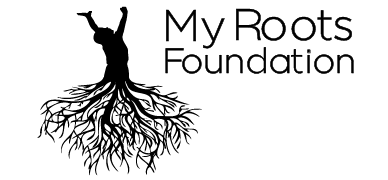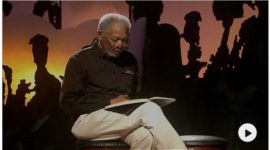Meanwhile back in his home town of St. Petersburg, FL, grandfather makes the newspaper headlines with less grand news. It seems that on the word of a single white onlooker, grandfather was collared, jailed, and fined for speaking ill of white guardsmen on parade in downtown St. Pete. The article brings home the point, that even after giving blood, sweat, and tears for America, the colored soldier returning home had yet another war to wage.
After the war, he then married my grandmother and together they created a family. In later years, my mom remembered that he changed. In a word, she described him as “crazy.”
“We won the war, but lost the man,” she would explain. I still remember her walking pass the letter from JKF which my grandmother proudly displayed on our living room wall. Mom would pause at the certificate and utter, “I gave them my daddy; they gave us this paper.”
As I researched info on him, I was shocked when my genealogy search lead me to hospital records from the Florida State Hospital for the Insane. The records describe a patient with “Manic Depressive Psychosis [currently referred to as PTSD] thoroughly detached from reality and his family.”
So what happened, why had this tender, loving man wound up a patient in a state mental institution? His medical record reports that, “Since admission he becomes upset; fights other patients or anyone with whom he comes in contact; requires restraint to control him.” “When admitted, did not know anything about his family, nor cared. Good physical condition; much ego.”
What happened? I believe the answer is racism – Jim Crow happened.
Homecoming parades for returning black soldiers attracted thousands of people and signaled a determination to translate their service into social and political change. But this acceptance was not to be. The awards and praise from wartime efforts contributed to a new racial pride. But little had changed in terms of race relations in the United States.
Grandfather returned to a world where he could be beaten, detained, even killed for wearing his Army khakis or dress uniform in public. Angered at the humane treatment with which the French had treated African Americans during the war, white mobs lynched seventy black veterans—many still in uniform—in the first year after the war.
What do you do with that? Many African American troops fought bravely and expected respect and equal treatment when they returned home. Many had learned skilled trades in the service, and looked forward to better jobs on their return. Instead, they were subjected to increased racism. Jim Crow laws made it illegal for them to attend “white” schools or drink from “white” water fountains. Skilled jobs were closed to blacks regardless of training or education, or they were paid a fraction of the wages whites earned for the same labor.
After fighting overseas, grandfather returned to fight at home. Memories of the war and now the war that raged inside of him, proved too much for him.
Society gave him a situation where it would be nearly impossible for him to get the help he needed to heal. When the Tuskegee Veterans Administration Medical Center home opened, in 1923 as an old soldiers’ home it was fully staffed by white doctors and nurses. The home-hospital, was created on land donated by the Tuskegee Normal and Industrial Institute campus (now Tuskegee University). Imagine if you would, a black man in an institution being questioned by white folks in medical uniforms. Who in all honesty would believe that the answer to “How are you today, boy?” would return anything close to the truth – in a society where black men were routinely hanged for telling a white man what was truly on their minds?
Grandfather died there on February 4, 1939. He is buried at Bay Pines National Cemetery in St. Petersburg, Florida. Racism in America has shaped the American experience for me and my family as it relates to health care, patriotism, and education.




Rick Schelm
on
I am gravely sorry that your grandfather was treated so horribly, and for so long. You and your family’s hurts produced painful scars that must be tender and painful even today. None of you deserved this. Jesus is the only answer, as man is so flawed in the treatment of fellow man. Thank you for being my brother in Christ. The power of his blood must cleanse this sin; nothing else can.
Rick
Alonzo
on
Thanks Rick! The scars are real; they cannot be ignored or minimized.